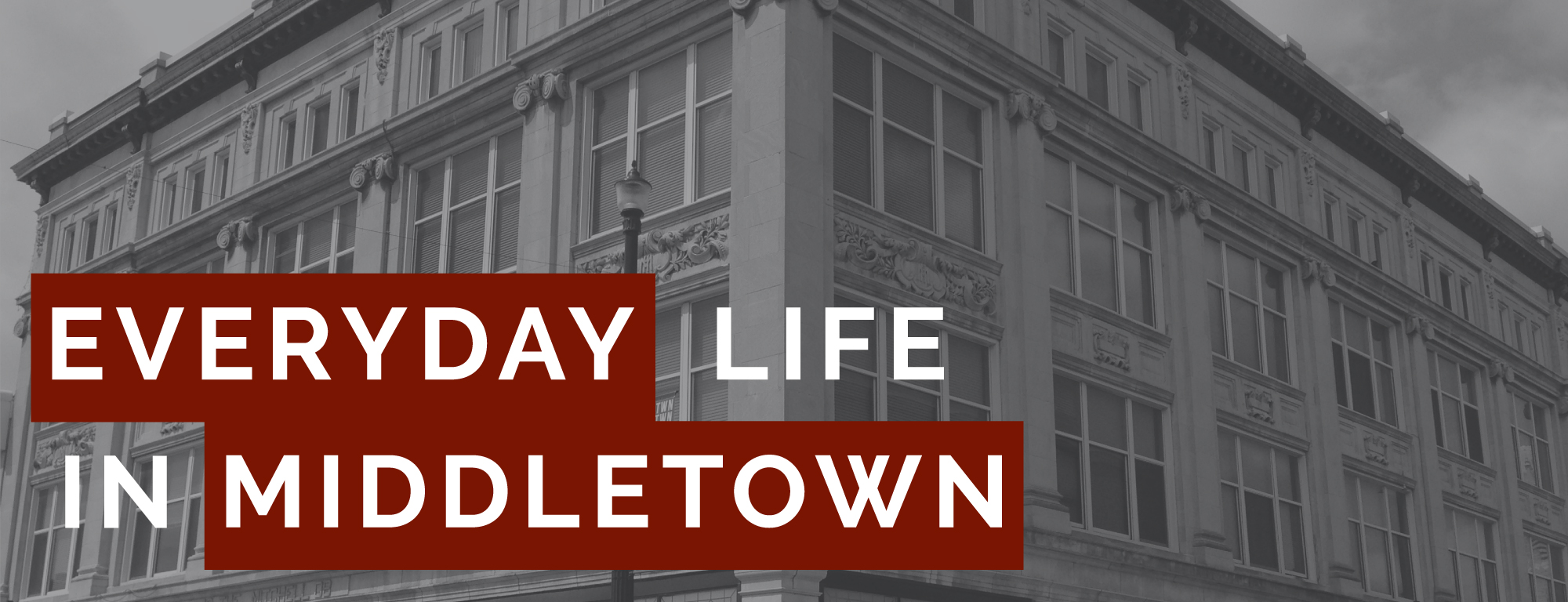Everyday Life in Middletown takes part in a wider scholarly movement known as Everyday Life Studies. You can learn about our project’s specific origins here. On this page, we offer a brief introduction to the concept of Everyday Life.
Here you can find an introduction to major artists and thinkers who have studied Everyday Life.
What is Everyday Life?
Routine daily activities—eating, commuting, daydreaming, internet-surfing, tooth-brushing—take up a huge proportion of our lives. But we are barely conscious of them, and their nature and meaning have proven ambiguous and hard to pinpoint.
To point to just a few of Everyday Life’s complexities: everyday routines (morning dog-walking, making breakfast, talking in bed) can be reassuring and comforting. And the same routines can become boring, deadening, dreary—sometimes within the same week, or the same day.
Is everyday life the place in our lives where we have the most freedom? Minute to minute, we make our own decisions (what to eat, what to wear, which route to take to work). Whereas our influence over larger social issues, or even our own future, may appear vague or unassured, in the everyday we control or lives in a thousand small ways.
Or, is Everyday Life the sphere of our lives where overwhelming social forces oppress us in the most profound ways? Are our everyday routines the most intimate results of social conditioning and economic necessity, forces beyond our control or even our understanding?
Artists and social scientists began posing these questions insistently around the end of the nineteenth century. Their work laid the foundation of the emerging academic field of Everyday Life Studies, in which scholars trained in literary studies, anthropology, sociology, communications, and other fields seek to record, represent, analyze, and theorize the nature, significance, and political valences of everyday life.
The Everyday vs. the Event
Everyday life is perhaps most easily defined via the binary opposition between “the everyday” and “the event.” The everyday is characterized by repetition, banality, drift, and flow—it disappears as it’s happening, often beneath the level of conscious attention. It rarely gets recorded and thus is difficult to fix and study. The event, in contrast, stands out from the flow and drift of the everyday. Histories, biographies, memoirs, and archives record events; the everyday escapes into the gaps–in historical records, in life stories, between disciplines.

